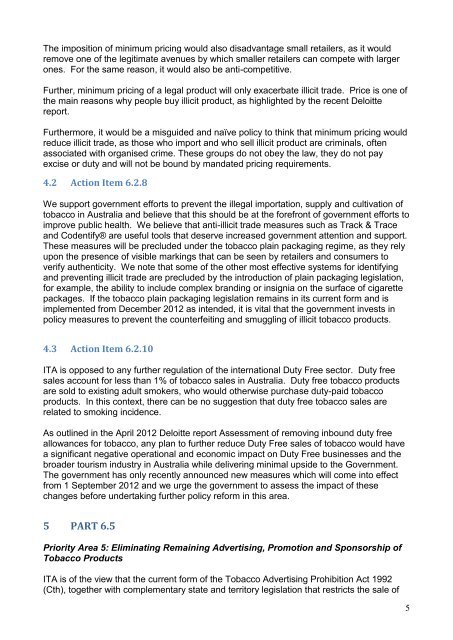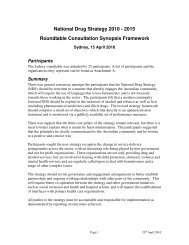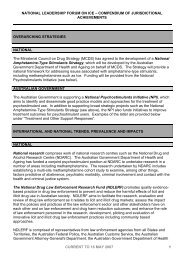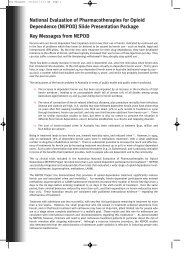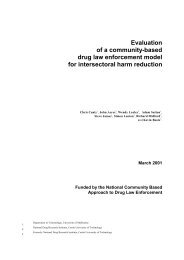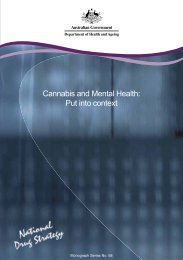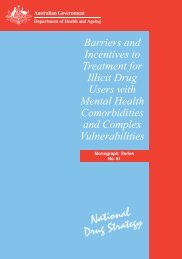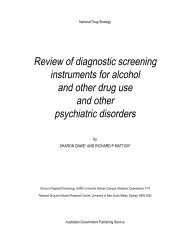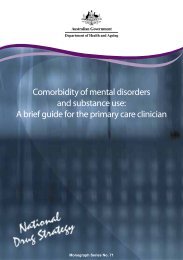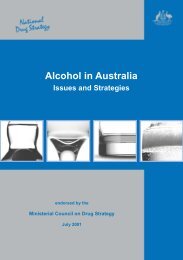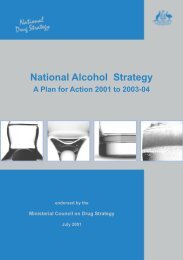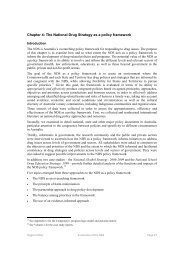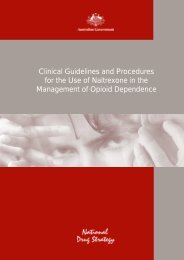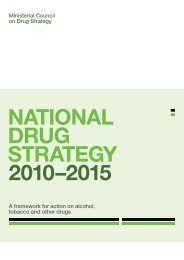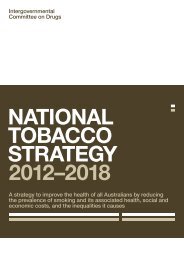Submission by Imperial Tobacco Australia Limited (PDF 600 KB)
Submission by Imperial Tobacco Australia Limited (PDF 600 KB)
Submission by Imperial Tobacco Australia Limited (PDF 600 KB)
Create successful ePaper yourself
Turn your PDF publications into a flip-book with our unique Google optimized e-Paper software.
The imposition of minimum pricing would also disadvantage small retailers, as it would<br />
remove one of the legitimate avenues <strong>by</strong> which smaller retailers can compete with larger<br />
ones. For the same reason, it would also be anti-competitive.<br />
Further, minimum pricing of a legal product will only exacerbate illicit trade. Price is one of<br />
the main reasons why people buy illicit product, as highlighted <strong>by</strong> the recent Deloitte<br />
report.<br />
Furthermore, it would be a misguided and naïve policy to think that minimum pricing would<br />
reduce illicit trade, as those who import and who sell illicit product are criminals, often<br />
associated with organised crime. These groups do not obey the law, they do not pay<br />
excise or duty and will not be bound <strong>by</strong> mandated pricing requirements.<br />
4.2 Action Item 6.2.8<br />
We support government efforts to prevent the illegal importation, supply and cultivation of<br />
tobacco in <strong>Australia</strong> and believe that this should be at the forefront of government efforts to<br />
improve public health. We believe that anti-illicit trade measures such as Track & Trace<br />
and Codentify® are useful tools that deserve increased government attention and support.<br />
These measures will be precluded under the tobacco plain packaging regime, as they rely<br />
upon the presence of visible markings that can be seen <strong>by</strong> retailers and consumers to<br />
verify authenticity. We note that some of the other most effective systems for identifying<br />
and preventing illicit trade are precluded <strong>by</strong> the introduction of plain packaging legislation,<br />
for example, the ability to include complex branding or insignia on the surface of cigarette<br />
packages. If the tobacco plain packaging legislation remains in its current form and is<br />
implemented from December 2012 as intended, it is vital that the government invests in<br />
policy measures to prevent the counterfeiting and smuggling of illicit tobacco products.<br />
4.3 Action Item 6.2.10<br />
ITA is opposed to any further regulation of the international Duty Free sector. Duty free<br />
sales account for less than 1% of tobacco sales in <strong>Australia</strong>. Duty free tobacco products<br />
are sold to existing adult smokers, who would otherwise purchase duty-paid tobacco<br />
products. In this context, there can be no suggestion that duty free tobacco sales are<br />
related to smoking incidence.<br />
As outlined in the April 2012 Deloitte report Assessment of removing inbound duty free<br />
allowances for tobacco, any plan to further reduce Duty Free sales of tobacco would have<br />
a significant negative operational and economic impact on Duty Free businesses and the<br />
broader tourism industry in <strong>Australia</strong> while delivering minimal upside to the Government.<br />
The government has only recently announced new measures which will come into effect<br />
from 1 September 2012 and we urge the government to assess the impact of these<br />
changes before undertaking further policy reform in this area.<br />
5 PART 6.5<br />
Priority Area 5: Eliminating Remaining Advertising, Promotion and Sponsorship of<br />
<strong>Tobacco</strong> Products<br />
ITA is of the view that the current form of the <strong>Tobacco</strong> Advertising Prohibition Act 1992<br />
(Cth), together with complementary state and territory legislation that restricts the sale of<br />
5


